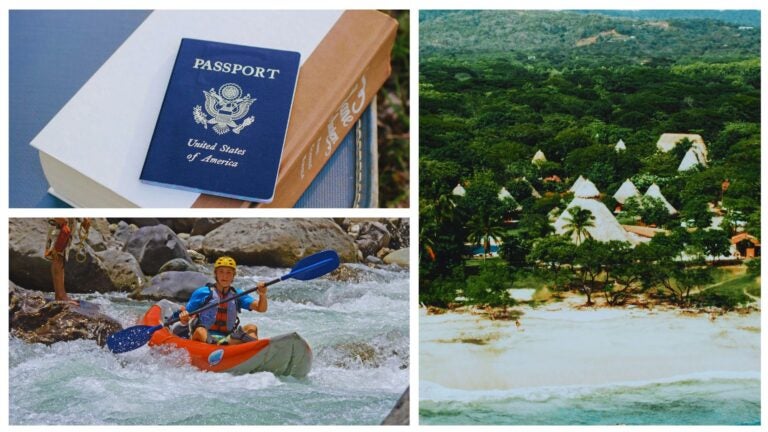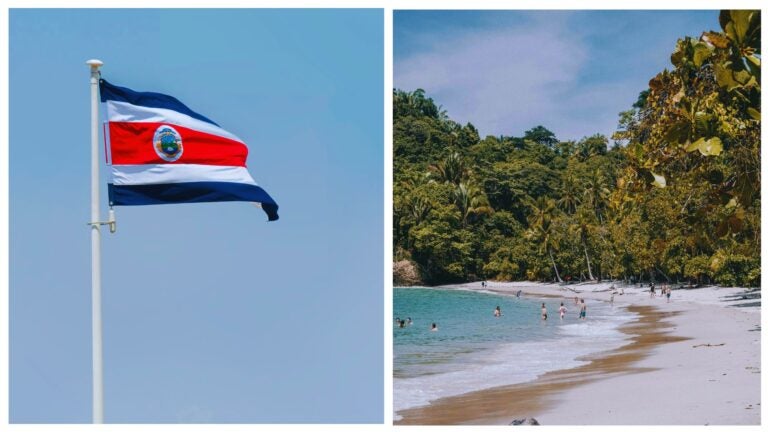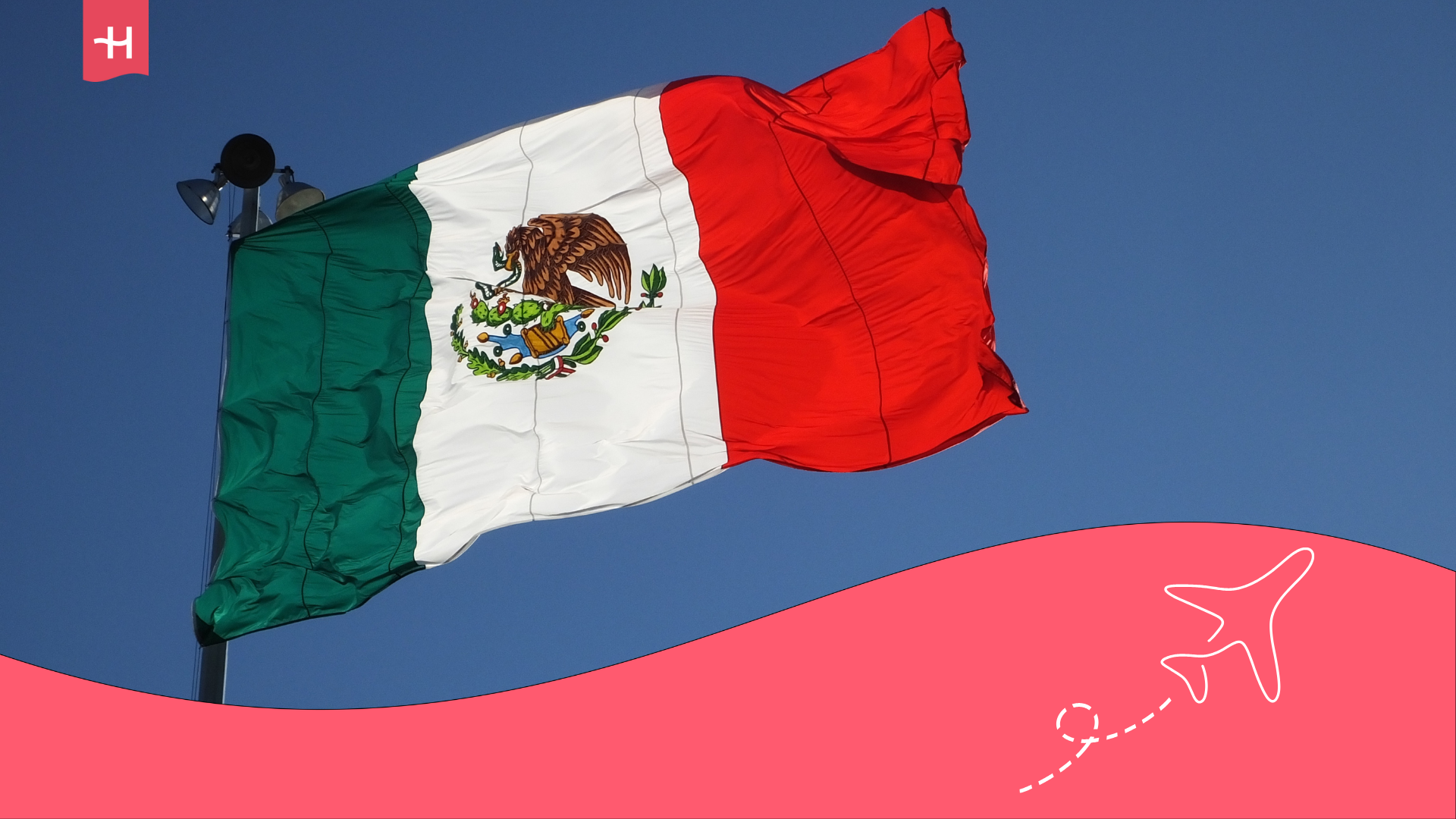What are the requirements to travel to Costa Rica from the USA?
Planning to travel to Costa Rica from USA? Know the requirements to avoid airport setbacks. Find out everything here.
Don’t start packing just yet! Before you travel to Costa Rica from the USA, make sure you go through this guide with all the entry requirements. Start checking off what you already have and what you still need so that when you arrive, everything goes smoothly and stress-free.
Traveling is about more than just booking a hotel or buying a plane ticket. If you are a U.S. citizen or resident, you can skip a few travel requirements depending on the purpose of your trip. Not sure which ones? Keep reading as we explain everything and share some helpful tips to make your stay in this beautiful country of rainforests, volcanoes, and beaches smooth and enjoyable.
Recommendation before traveling to Costa Rica
Whether you are visiting this Central American destination for vacation, work, or a bit of both as a digital nomad, staying connected is just as essential as your passport. You don’t want to land and immediately stress about finding Wi-Fi or a local SIM just to order a taxi, check your emails, or call your family back in the U.S. That’s why, for short trips, the Holafly eSIM for Costa Rica is a great option. You can choose the number of days you need, enjoy unlimited data, and stay securely connected wherever you go in the country.
But if you’re planning to stay a bit longer, Holafly’s monthly plans are the way to go. With their global eSIM, you can stay connected in more than 170 countries, which is perfect if you travel often. You can pick from three flexible monthly plans based on how much data you need, save on roaming fees, share unlimited data with multiple devices, and enjoy instant connection to the local network as soon as you arrive.
Forget about top-ups that end up costing twice as much as you expected. With Holafly, you pay one flat price with no surprises and enjoy high-speed internet wherever you go in the world!
Important: If you are a frequent traveler and want to stay connected without worrying about expensive roaming or looking for a new SIM at every destination, Holafly’s subscription plans are for you. With a single eSIM, enjoy internet in more than 170 countries for a fixed price and no surprises on your bill. Travel without limits and connect easily and securely! 🚀🌍

Now, after this great tip, let’s get down to business and take a look at the requirements for traveling to Costa Rica from the USA.
1. One-way plane ticket to Costa Rica and return ticket to the USA
Every traveler needs to meet this requirement, regardless of why they are visiting. When you arrive in Costa Rica, immigration officers will ask for proof that you are leaving the country, whether that is a return flight to the United States or a ticket to your next destination.
2. Tourist, residence, or work visas for Costa Rica
Are you a tourist, student, nomad, or worker? Depending on the reason for your trip, you may or may not need this requirement.
Tourists
Costa Rica classifies countries into groups to determine entry requirements and the length of stay permitted. U.S. citizens belong to Group I, which means:
- Visa-free entry.
- You can stay in the country for up to 180 calendar days, and this period cannot be extended. However, the immigration officers at the airport have the final say on how long you are allowed to remain in Costa Rica. If you are granted fewer than 90 days upon entry, you may request an extension for a total stay of up to 90 days.
- Your passport must be valid for at least one day at the time of entry.
Citizens or residents of U.S. territories such as Guam, the U.S. Minor Outlying Islands, the U.S. Virgin Islands, and American Samoa are subject to the same entry rules, as long as they travel with a valid U.S. passport.

Students
If you have been accepted to study at an educational institution in Costa Rica, no matter how long your program lasts, you will need to apply for a student visa. This process involves submitting a letter of acceptance, proving you have sufficient funds to support yourself, and obtaining health insurance that covers your entire stay.
Workers
If your goal is to work in Costa Rica, you will need to obtain a work visa. This requires a job offer from a Costa Rican company that can justify hiring a foreign worker. The employer must first request authorization from the Ministry of Labor and Social Security in Costa Rica. Once the Ministry approves it, you can apply for your work visa at the nearest Costa Rican consulate.
Digital nomads
Good news for adventurous Americans. Costa Rica offers a special digital nomad visa that lets you live and work there for up to a year. To qualify and enjoy remote work in this tropical paradise, you will need to show that you earn at least $3,000 a month, or $4,000 if you are bringing family members, along with meeting a few other basic requirements.
3. U.S. passport.
As mentioned earlier, for short tourist stays, U.S. travelers only need a passport that’s valid for at least one day beyond their arrival. However, this rule does not apply to longer stays. For example, if you are applying for the digital nomad visa, your passport must be valid for at least six months in order to qualify.
In Costa Rica, passports must meet the security standards set by the International Civil Aviation Organization (ICAO). This means your passport should have an electronic chip that contains readable information such as your photo and fingerprints. This allows immigration officers to quickly verify your identity, ensure your passport is compatible with the country’s border system, and make the entry process faster and more efficient.

4. Place of accommodation and proof of financial solvency
While these requirements might be optional in some countries, U.S. travelers entering Costa Rica must have a confirmed accommodation booking or a place to stay, and be ready to show proof of it at immigration. As for financial means, there is a minimum amount you must demonstrate based on your immigration status.
- Address of accommodation: Paid reservation on Airbnb, co-living, hotel, or private residence.
- Financial solvency: Tourists are required to show that they have at least $100 for each month of their stay. Digital nomads, who are allowed to remain in the country for longer periods, must provide proof of earning at least $3,000 per month. Students and workers, on the other hand, need to show where their funds come from, whether through family sponsorship, scholarships, or an employment contract that specifies their salary.
5. Medical insurance for traveling to Costa Rica
American students and digital nomads applying for a visa must purchase a health insurance policy in Costa Rica as part of the application requirements. For tourists, it is not mandatory, but it is definitely something worth considering. After all, accidents can happen anywhere, especially in a country with such incredible natural diversity and exotic wildlife. Having international health insurance can also come in handy for your next trip, since most plans offer wide coverage around the world.
6. Vaccinations
U.S. citizens are not required to show proof of vaccination unless they have recently traveled to certain South American countries (such as Peru, Colombia, Bolivia, Brazil, or Panama) or parts of Africa (like Kenya, Uganda, Ivory Coast, or Nigeria). In those cases, travelers must present an international yellow fever vaccination certificate that was issued at least 10 days before their trip.
7. Go through immigration when you arrive in Costa Rica
This process can be quick and hassle-free as long as you have all your documents ready. It is a good idea to keep printed or digital copies of your passport, return ticket, proof of funds, itinerary, and accommodation details. Keep them together in a folder or somewhere easy to reach in your carry-on bag so you can show them to immigration officers without any trouble.
When you step off the plane and head to the immigration line, be ready to answer a few questions, such as: What is the purpose of your visit to Costa Rica? How long will you be staying? Where will you be staying during your trip? How will you be funding your visit? If everything is in order, the officer will stamp your passport. Keep in mind that even though U.S. tourists are allowed to stay for up to 180 days, the immigration officer at the airport has the final say on how long you are permitted to remain in Costa Rica.
For other types of visas, such as a student visa, the process is basically the same, although the length of stay usually matches the validity of the visa. If immigration officials notice anything unusual and make changes to your permitted stay, you can request an extension through Costa Rica’s General Directorate of Immigration once you are in the country.

8. Air departure tax
Costa Rica charges a mandatory departure tax of $29 for all travelers leaving the country by air. In most cases, this fee is already included in the price of your ticket, but it’s a good idea to double-check with your airline or travel agency before your flight. If your ticket doesn’t include it, you can pay the fee directly at the airport before you leave.
Other tips for traveling to Costa Rica
Here are a few tips that, while not strict requirements for traveling to Costa Rica from the USA, can help make your trip smoother and your overall experience even better. Take note!
1. Travel insurance in Costa Rica
If paying for full health insurance feels unnecessary because you already have coverage in the United States, you can opt for travel insurance instead. A travel insurance plan for Costa Rica usually covers things like lost luggage, medical emergencies, and even repatriation in extreme cases. It’s valid for the length of your trip and tends to be a more budget-friendly option.
2. Driver’s license in Costa Rica
If you plan to rent a car in Costa Rica, your U.S. driver’s license is valid for the first three months of your stay. You don’t need an international driving permit, but it’s a good idea to have one if you’ll be staying longer. Some rental companies may also ask for it as an extra requirement.

3. Use foreign currency and local currency
The official currency of Costa Rica is the Costa Rican colón (CRC), although U.S. dollars are widely accepted in tourist areas. It’s best to carry both currencies and use colones when shopping at local businesses, since you’ll often get a better rate. Always check the exchange rate before paying, and if you plan to use U.S. dollars, make sure your bills are clean and undamaged, as some places might not take worn ones.
4. Appropriate luggage
When packing for your trip to Costa Rica, keep in mind that the country has a tropical climate. Bring light clothing, a rain jacket for forested areas, and comfortable shoes for long days of exploring. Don’t forget insect repellent and sunscreen so you can fully enjoy Costa Rica’s incredible wildlife, volcanoes, beaches, and all the natural beauty this country has to offer.
Frequently asked questions about requirements for traveling to Costa Rica from the USA
No, U.S. citizens don’t need a visa to enter Costa Rica and can stay for up to 180 days as tourists. If immigration officers grant you fewer than 90 days, you can apply for an extension once you’re in the country.
For tourists, a passport only needs to be valid for at least one day after arrival, but for students, digital nomads, and workers, it must be valid for at least six months.
Yes, you must show a plane ticket that shows you’ll be leaving the country within the allowed period of stay.
Tourists need to show they have at least $100 for each month of their stay. Digital nomads must meet an income requirement of $3,000 per month. Students and workers are expected to show proof of income through a job contract, scholarship, or family sponsorship.
For tourists, health insurance isn’t mandatory, but it’s strongly recommended in case of medical emergencies. However, for certain types of residence or work visas, having health insurance is a required part of the application.
Yes, there’s a $29 departure tax. Airlines usually include it in the price of your ticket, but you should check with yours to be sure.
Only if you’re coming from a country where yellow fever is a risk, such as Brazil, Colombia, or certain African nations. In that case, you’ll need to show proof of vaccination given at least ten days before your trip.





 Language
Language 


















 No results found
No results found








